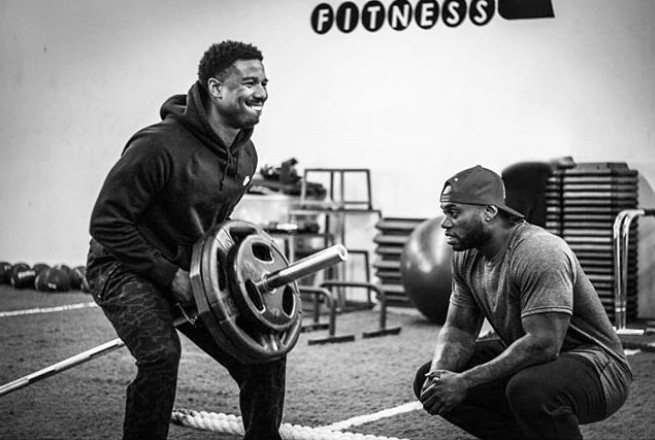A race day is a vigorous time that requires balanced preparation that involves mental and nutritional routines. A level of your preparation influences your performance. Therefore, if you want to achieve prominent results, you should invest in training. Never underrate the power of preparation because it is a fundamental thing in the whole pre-race period.
After the 1996 Olympics, researchers identified factors that had positive and negative effects on performance at the Games. One of the findings was that athletes who adhered to physical and mental preparation plans performed well. So, good preparation is a lesson that should be learned.
Training may last for months, but only 24 hours before the start are the most crucial.
Here are some handy tips that will help you to know what to do before a run and how to make it successful, which means that you will finish the race and have a lot of fun!
What To Do Before A Run
Obviously, before the run, you should be fully prepared physically and mentally and you should know all the details concerning the organization of the race.
Physical Preparation

Your nutritional approach shouldn’t be changed just before the race as it can influence the digestive system negatively. Stick to the traditional eating plan you follow throughout your training. If you can’t eat due to the nerves, make sure you eat a well-balanced dinner night before the race. But never eat too close to the race because it may cause gastrointestinal distress. Andrew Smith, a 31-year-old elite runner from Toronto has been running professionally since 2003, recommends finishing the dinner by 7 p.m. in order to maximize digestion time.
Besides, stick to the following rules:
- Hydration
During the race, electrolytes like sodium, potassium, and magnesium, are lost through sweat and need to be replaced. Thus, you should stay hydrated during the race, so make sure you are hydrated the day before the race. If you need to check whether you are sufficiently hydrated, check the urine color. A yellow or a dark brown color points out that the body is dehydrated.
- Consume usual drinks
It is known that tea and coffee can have a diuretic effect. It’s true, but only in some cases. Thus, studies show that drinking 2-3 cups of coffee or 5-8 cups of tea or iced tea of a standard amount of caffeine per day has no diuretic effect. However, people who haven’t consumed tea and coffee for some time can react to high doses of caffeine (250-300 mg). Drinks with large doses of caffeine increase urination. Nevertheless, this is a temporary reaction to caffeine after long abstinence. Once the body accustoms itself to regular coffee intake, the water loss from the body is insignificant.
Also, abstain from alcohol. The American College of Sports Medicine has released its guidelines on the effects of alcohol, including: “Psychomotor skills are adversely affected by acute alcohol consumption; maximal aerobic power as assessed by VO2max is minimally influenced with acute alcohol consumption; acute alcohol ingestion is not associated with improvement in exercise capacity and may decrease performance levels; the consumption of alcohol may perturb the body’s temperature regulation mechanisms during exercises particularly in a cold environment.”
Run before the race
If you wonder – should you run the day before a race, the only answer is “yes!” There are some reasons why:
- Running on the day before the race is one of the ways of your warm up. Its main purpose is to prepare the body for running at race pace. When you accelerate at the start of the race, the amount of blood pumped by the heart increases to 5-6 times, and the oxygen consumption increases about 15 times. Therefore, warming up prepares the body for the improved blood rate, increased oxygen consumption and activates enzymes for aerobic energy production. If you don’t run before the race, then you put a strain on the cardiovascular system, and it affects your endurance level negatively.
- If you run before the race, it increases the muscle temperature and the muscles become less stiff. Eventually, the risk of injury is reduced.
- Pre-race running improves your blood flow so that you are flexible, which is important for short races and your muscles store extra glycogen, which helps you to run longer on long races.
- It stimulates your central nervous system, which is a link between the brain and the muscles. If the system gets enough stimulation, then the speed at which the brain sends signals to the muscles in order to activate muscle fibers is increased.
Eat clean
Proper nutrition before the race is vital as it optimizes hydration levels and increases glycogen stores (the energy source). One of the major factors causing fatigue is dehydration and carbohydrate depletion. So, if you wonder what to eat day before a marathon, here are some tips.
You should eat complex carbohydrates before the race day. Carbs act as a fuel your body needs during the race. Go for smaller meals before the race but eat them more often and the last big meal should be 48 hours before the race. The best time to consume carbohydrates is right after the short and fast workout when the muscles are most receptive to glucose.
A typical breakfast before the race should be something you are familiar with and it should incorporate 100-200 grams of carbohydrates, it should be low in fiber with a moderate level of protein.
It is up to an individual what to eat but you should take a glycemic index (GI) and a glycemic load into account. GI is the tool that ranks carbohydrate-containing foods by how quickly they raise your blood sugar. Foods low on the glycemic index release glucose slowly and steadily, while foods high on the GI, release glucose rapidly.
Along with the glycemic index, a glycemic load should be considered. The glycemic load is a number that estimates how much the food will raise a blood glucose level. It is believed that the glycemic load is a better estimation because in this case, a serving size is considered.
Here are suggested low and high GI foods. Low GI foods rate a score of 55 and lower on the scale. The foods with a GI number of 56-69 are called medium-glycemic foods and those foods that have 70 and over are deemed high-glycemic foods.
The suggested low and high GI breakfast foods are the following:
Low GI – vegetables (broccoli, cabbage, cucumber, cauliflower, green beans, zucchini, tomatoes), fruits (apples, grapefruit, mango, kiwi, plums, peaches), grains (brown rice, barley, buckwheat, quinoa), nuts (peanuts, cashews).
High GI – vegetables (beetroot, parsnips, potato), fruits (bananas, apricots, ripe mango, watermelon), flakes, rice crisps, and sugar-coated cereals.
Some studies have found out that endurance was improved after pre-race meals with a low glycemic index; however, this seems somewhat variable between athletes and personal food preferences and tolerance seem to be the most important factors.
Sleep well
Having good sleep before the race is crucial because it affects your endurance level. If you don’t get enough sleep you get jacked up. During your sleep, melatonin is produced. This hormone slows down the aging process, it has an antioxidant effect, it regulates the work of the cardiovascular system. In addition, growth hormone is produced. The hormone normalizes metabolic processes, prevents muscle destruction, strengthens joints and ligaments, affects tissue regeneration and increases glycogen storage in liver cells, which is especially important before the race.
Here are some tips how to sleep better:
- Determine your personal sleep requirements. Most adults require 7 to 9 hours of sleep to be fully energized. That is why you should sleep for 8 hours and pick a bedtime when you are likely to fall asleep.
- Get regular sleep both on training and rest days. Regularity stabilizes your biological clock and there is no need to worry about adequate rest before the race.
- Stick to healthy eating and training habits. This means that you should avoid drinking caffeine after 2 p.m., eating a heavy meal late in the evening, consuming alcohol three hours before bed. Also, try to exercise between 5 and 7 p.m.
- Dim the lights and limit exposure to “blue light,” which alerts circadian rhythms. These rhythms are physical, mental, and behavioral changes that follow a daily cycle. They respond primarily to light and darkness in an organism’s environment.
- Meditation helps to put the mind at ease, helping to prepare the body and mind for sleep. There is a helpful technique, called abdominal breathing. Put your hands on your belly, when you inhale and exhale, your hands should gently move. Focus on this movement and distract from your busy thoughts.
Stretch the muscles
Stretch your muscles well in order to reduce soreness and prepare them for a hard work. However, limit your stretching session to 2-3 repetitions per muscle group and don’t hold stretches for more than 15 seconds because studies show that too much static stretching temporarily reduces muscle strength.
Mental Preparation

In order to be successful and perform well, you should be prepared mentally for the race. For this, do the following:
- Set a positive mindset so that nervousness before the race can’t confuse you. Often, having a positive mantra for the race—such as “I can do it” will help you to focus on your goal and will distract you from any physical or mental pain. Also, use some mental strategies. For instance, check your emotional state, say “I feel” and think about something positive and encouraging. This is a proven sports psychology tactic.
- A mental rehearsal is a powerful tool of psychological preparation. Visualize your race and think about your success. Think about the race details, visualize the accomplishment of your goals and always stay positive so that even bad weather conditions can’t spoil your mood.
- Prepare mentally for each stage of your race. For instance, plan your pace, the periods when you are overtired, think how to deal with hills and how to react to unexpected situations.
- Do breathing exercises that will help you to calm down. Even if you are an experienced athlete, you can feel nervous before each race. Meditation helps you eliminate stress you may experience. You can try the following technique: inhale, count to 6, exhale through the mouth, then pause for a few seconds and repeat 10 times.
Organizational Matters
You should find out all details to be 100% sure that nothing will distract you from the race. Thus, there are a few things you can do:
- The race morning may be a pain in the neck, so you should minimize the hassle. Do everything beforehand so that these things won’t bother you on your big day. Find the best route to get to the race site. Think about the time you need to check-in, the parking area and make sure you have this route in your GPS.
- Read all guidelines and registration materials so that you know when the race should start. Also, read start-line etiquette.
- Lay out your race clothing so that you don’t have to worry about it on the race day. Also, change the clothes after you check the weather forecast. Remember that during the race you’ll feel 10 degrees warmer so don’t overdress. If you overdress, you create a microclimate around the skin that induces sweating. Besides, create a race gear checklist, go through it and check off each item. A race chip, a race number, sunglasses, Orthotics, hats, fuel (water, gels, beverages), a watch, gloves, blister care products, shoes, dry clothes, and sunscreen are the must-haves.
- Assuming that the race allows using headphones, build your perfect playlist and test it with your headphones. Robin Azron, a running coach and ultramarathoner in New York City, says that songs paced between 90 to 110 BPM (beats per minute) are ideal for running.
Conclusion
Thus, these strategies will help you to perform to your utmost ability and they provide injury-free and pleasant experience. By far, the most important advice on the race day is to relax and have fun!
Written by Francesca Russo https://thecrossfitshoes.com/
Readers Also Liked:
 9 Life Hacks To Gain From Starting A Yoga Practice
9 Life Hacks To Gain From Starting A Yoga Practice
Cardio vs. Weight-lifting: Best Way To Get In Shape & Stay In Shape
 “Black Panther” Head Trainer Corey Calliet Shares His Top Fitness Tips
“Black Panther” Head Trainer Corey Calliet Shares His Top Fitness Tips

